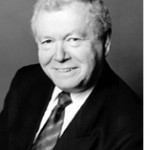By Rabbi Dow Marmur
 JERUSALEM–Though Israel hasn’t (yet?) become the Jewish spiritual centre that some early Zionists envisaged, there’re currently many important efforts to build bridges between Jewish tradition and contemporary Jewry that might renew Judaism and reinvigorate the Jewish people everywhere.
JERUSALEM–Though Israel hasn’t (yet?) become the Jewish spiritual centre that some early Zionists envisaged, there’re currently many important efforts to build bridges between Jewish tradition and contemporary Jewry that might renew Judaism and reinvigorate the Jewish people everywhere.
Some of it, alas, is ugly and dangerous, e.g., using biblical myths about the conquest of the land and the subjugation of the indigenous population as a reason for occupation and discrimination. But much of it is wholesome, important and promising.
I’ve spent the last two days at a conference of the latter kind. It tried to integrate halakhah, traditional Jewish law, into the fabric of contemporary life in ways that go beyond citing Scripture and its classical interpreters, and yet recognizing that there can be no authentic Judaism without distinctly Jewish halakhic practice.
We often differentiate between two dimensions of Jewish observance: between humans and God on the one hand, and between humans and humans on the other. Classical Reform liked to designate the former as ceremonies, subject to personal choice and collective (at times arbitrary) change, and the latter as ethics that are binding on all. Whereas ritual observance separates Jew from Gentile, ethical behaviour is universal.
Most Jews, especially after the experience of the Holocaust and the triumph of Jewish sovereignty, don’t acknowledge the Reform distinction, even though they often live by it in their selective and often idiosyncratic observances. Nowadays even most Reform Jews have moved beyond their classical phase and joined many other movements – some even defining themselves as secular – that are looking for more persuasive arguments in support of the whole range of Jewish practice, ritual no less than ethics.
Many of the papers delivered at the conference were about that. Anthropologists described how ostensibly modern religious practices of Jews relate to traditional norms. Philosophers and educators delved into the writings of modern Jewish thinkers in search of criteria that affirm Jewish observance without invoking dogma or jurisprudence.
The most cited modern thinker at the conference was Franz Rosenzweig (d.1929) who in his short life tried to offer a very different scenario for Jewish life and thought, long before the Holocaust and Israel, by making the important distinction between Gebot (commandment, mitzvah) and Gesetz (law, halakhah) and discussing the relationship between them that allowed for fidelity to tradition and stress on autonomy of the self.
The fact that some of the current research along those lines also affects the ultra-Orthodox community is significant. It seems that even haredim are seeking ways of staunch adherence to halakhah combined with modern elaborations and variations.
I’m among those who believe that contemporary Judaism is post-halakhic because authoritarian dictates no longer cut much ice with most Jews. Yet observance as mitzvah, subject to individual discretion and communal creativity, is very much needed and desired. A new relationship between law and commandment may come to characterize this new age as it builds upon what Rosenzweig called new thinking.
Though many of the papers were academic and dry, their total effect was to reassure us that thoughtful Jews, not least Israelis, are seriously struggling with the problem. It’s good news for all who care about the continuation and renewal of Judaism.
*
Rabbi Marmur is spiritual leader emeritus of Holy Blossom Temple of Toronto. He now divides his time between Canada and Israel